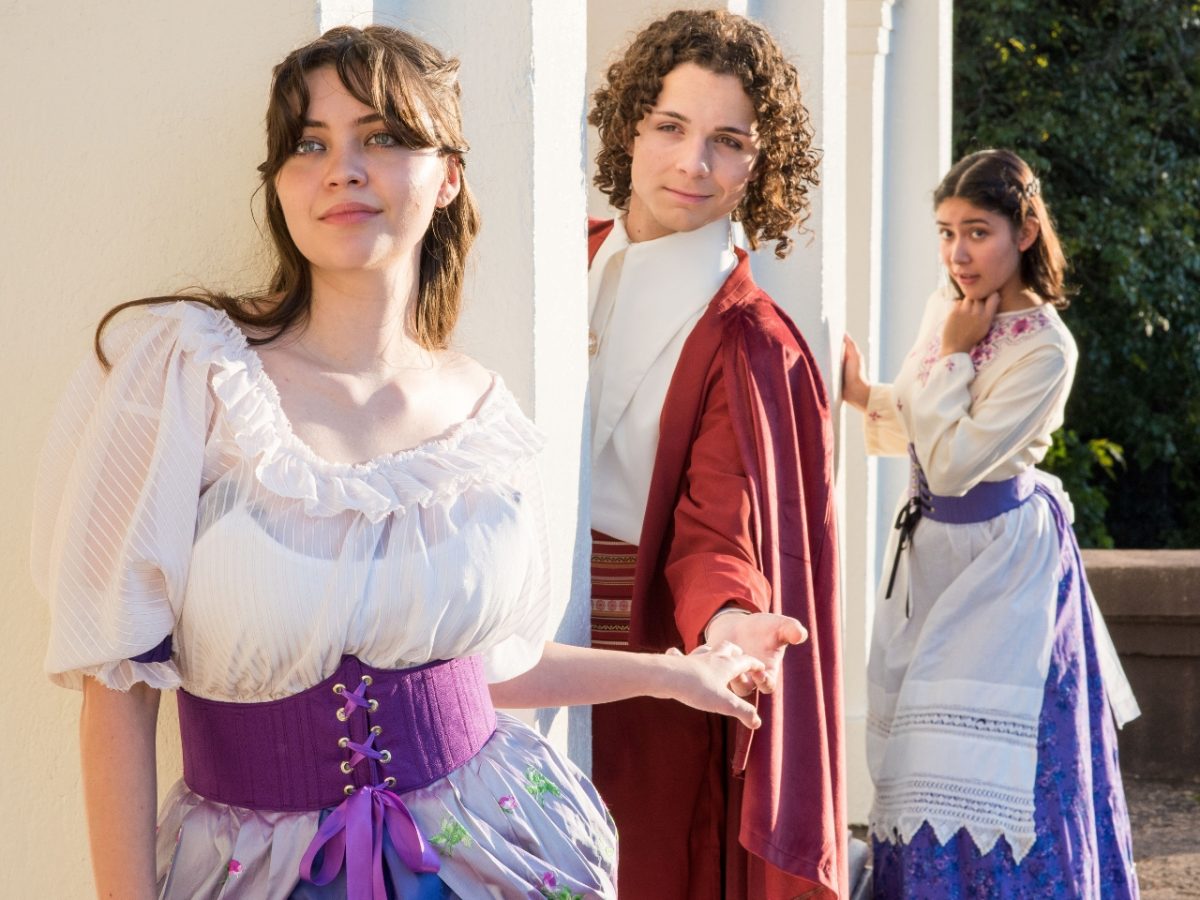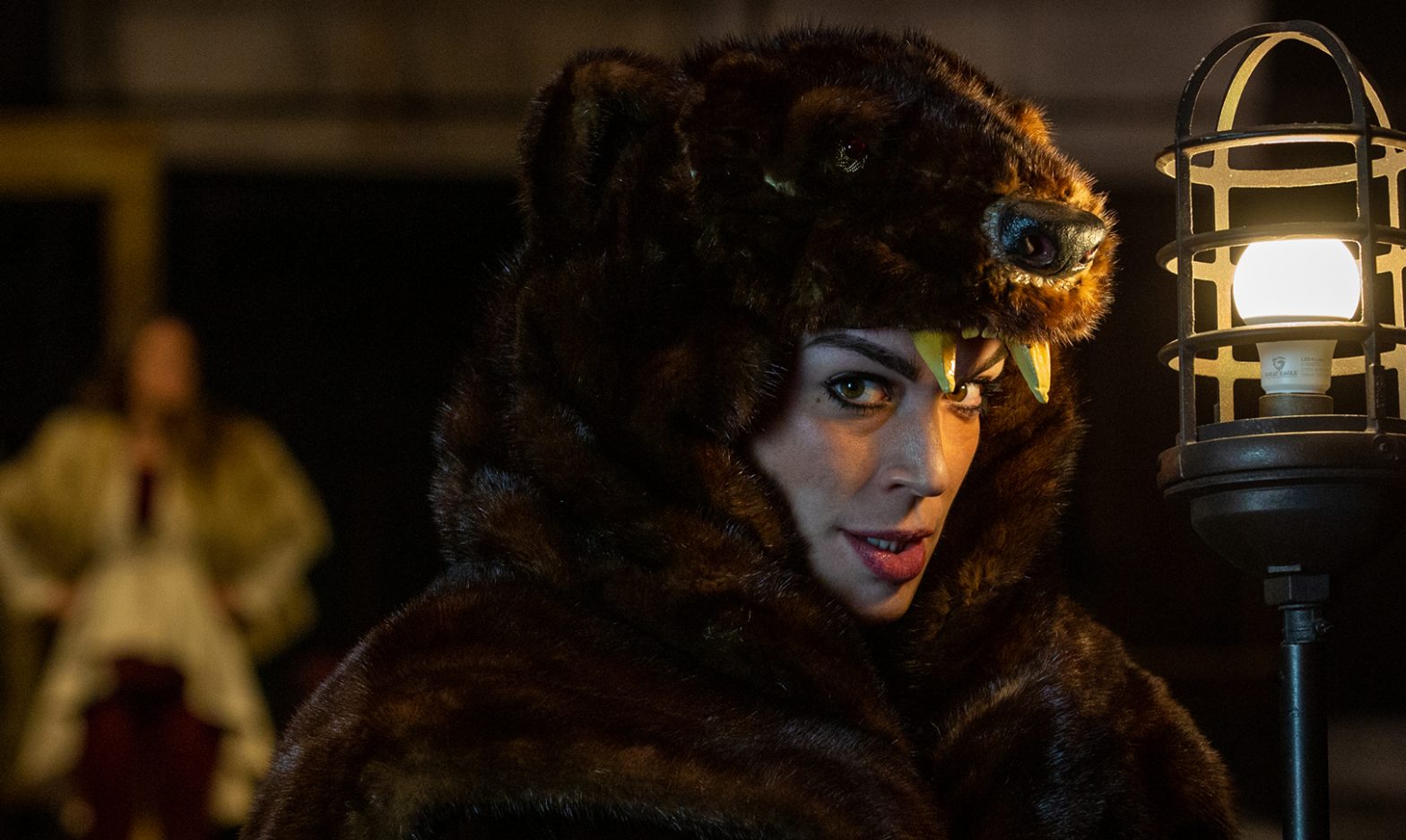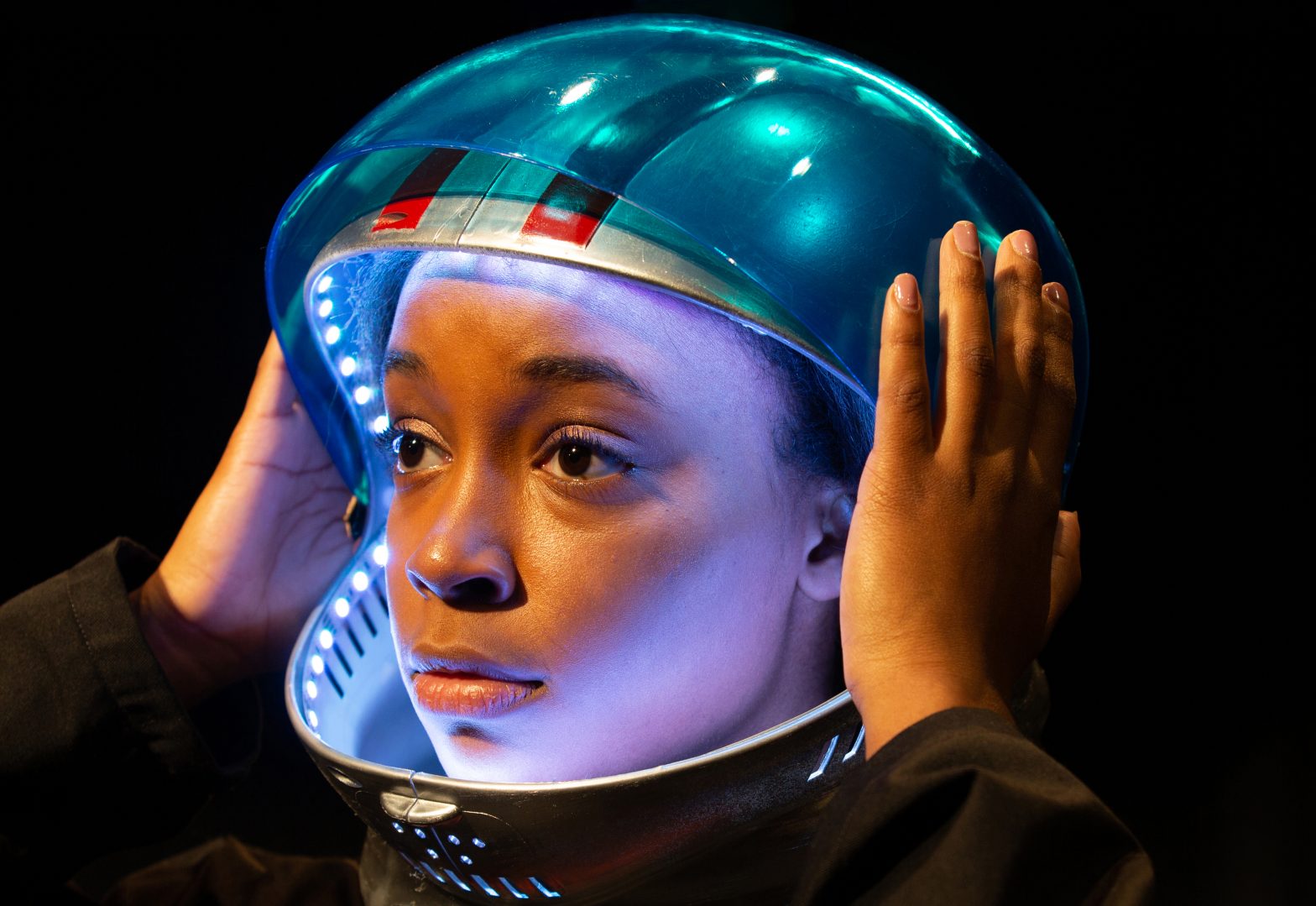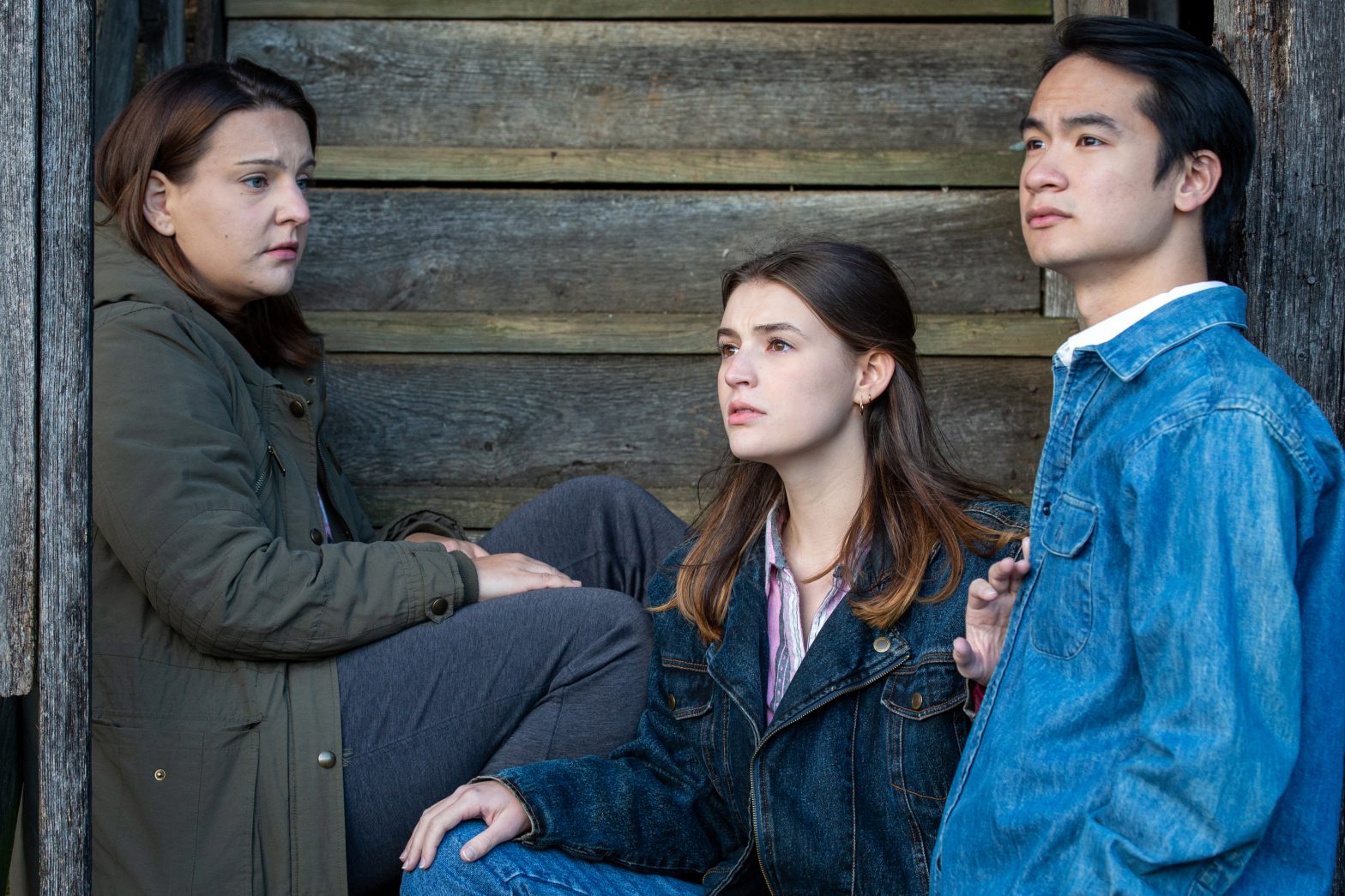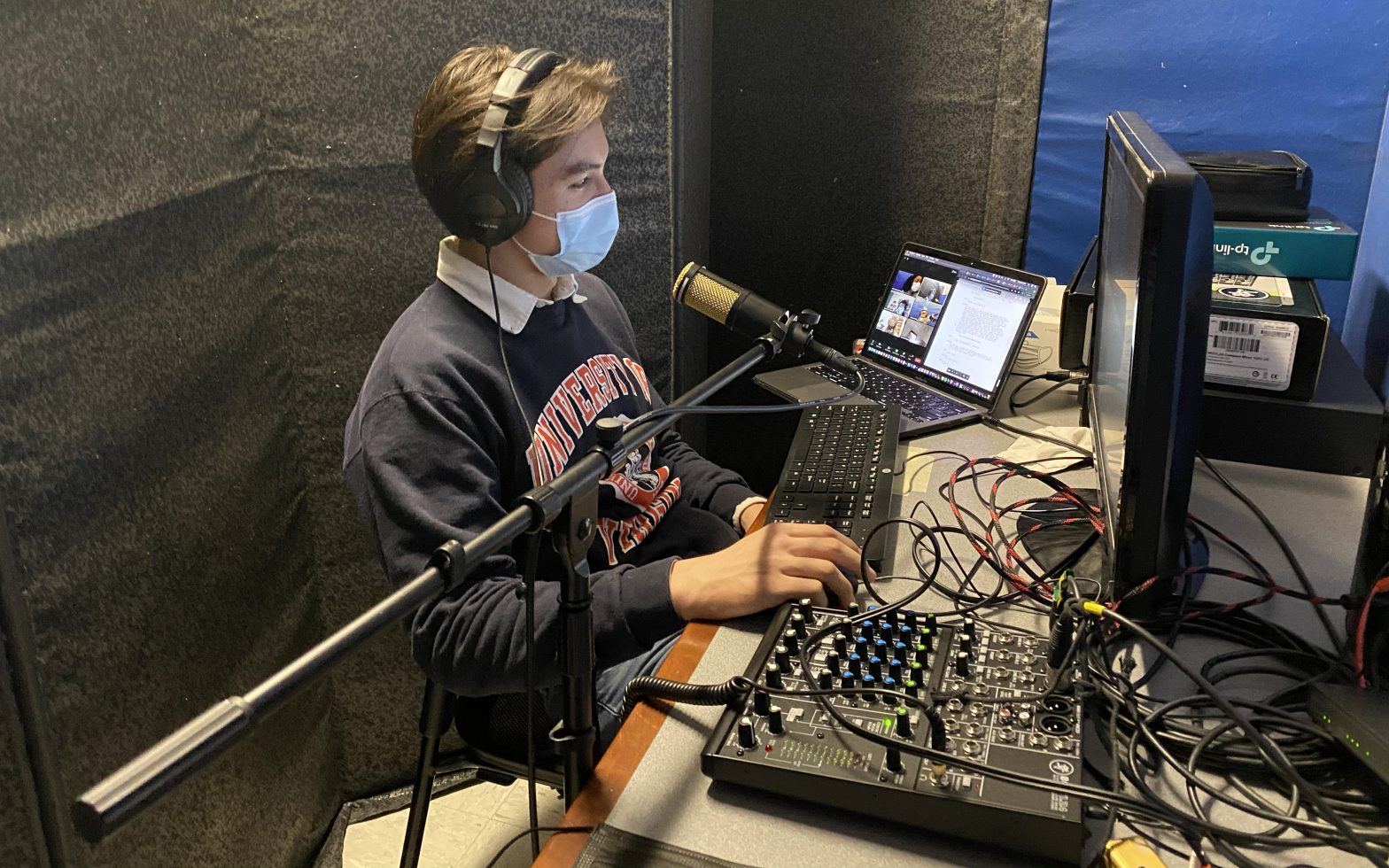The year is 1995, “Friends” is all the rage, and Tilly Evans is “the most uncommon form of nerd in the world”—a girl-nerd who loves Dungeons & Dragons.
So begins She Kills Monsters, the 2011 comedy-drama by Qui Nguyen. Known for his innovative use of pop culture, stage violence, puppetry, and multimedia, Nguyen transports us to a simpler time “before Facebook, World of Warcraft, and massive multiplayer online RPG’s.”
Agnes Evans is Tilly’s older sister, an English teacher in small-town Ohio. We learn that on the eve of her high school graduation, as she wished her life “was less boring,” a car crash killed Agnes’ mother, father, and Tilly all at once.
Agnes never connected with Tilly or her penchant for armor and fantasy talk. But when she finds a D&D notebook, handwritten by Tilly, she’s determined to make sense of it—to understand Tilly in ways that she couldn’t while her sister was alive.
To learn more about the role playing game, Agnes seeks out a Dungeon Master, an experienced player who acts as referee and storyteller, and so meets Chuck Biggs, a swaggering nerd who describes himself as “big where it counts—in the brain.”
That’s how Agnes learns that Tilly, aka Tillius the Paladin, was a highly respected, widely-known force in the D&D community. It’s the first of many surprises Agnes will uncover about her sister—once she steps inside the game.
From the show’s opening moments to its fantastical conclusion, UVA’s production of She Kills Monsters immerses audience members in a world of imagination. Like Agnes, we enter the theater fresh from “average” lives and quickly find ourselves flooded with the sights, sounds, and excitement of epic battles, supermodel elves, sexy demon-women, and slapstick crusaders. Each element of this production, from the sets to costumes to lighting and sound design, is wildly, wonderfully creative.
Consider the monsters (there are many), all of which need to be slain. The majority are massive puppets, wielded by students who operate the creations with grace and careful choreography. It took a team of 13 students to create these larger-than-life enemies, and the overall effect is fantastic. Up close, each monster is a standalone work of art.
For scenes set in average spaces like high school hallways and suburban living rooms, towering gray set pieces create a muted backdrop without much color or character. But when you enter the world of the game, the simple canvas comes to life, illuminated by projections of Lord of the Rings-style landscapes, WWE-type announcements, and lights that shift across spectrums and sometimes strobe.
The costumes are equally evocative. Sweeping gowns with thigh-high slits, leather breastplates, and gleaming swords; the hooded cloak Chuck sweeps around him like a dorky Merlin DJ—each detail is vivid, colorful, and supremely entertaining. As time passes and she finds herself drawn deeper into the game, even straight-laced Agnes allows herself to don elbow-length gloves and a leather epaulet.
The sound design might be my favorite aspect of the production. As you probably expect, big-screen-worthy soundscapes usher our heroes along their quest. But it’s details like the sound of rolling dice between scenes and the occasional blast of ’90s anthems that make it fun. Keep your ears open for a special Mortal Kombat moment—you won’t be disappointed.
As Tilly, Karen Zipor is strong and composed, just untouchable enough to maintain her believability. After all, she’s a game character, not Agnes’ flesh-and-blood sister, though you spend most of the show forgetting this fact. Aaryan Balu is fantastic as Chuck, who toggles between bombastic DM and uneasy stand-in for Tilly. When he cautions Agnes against pushing the script to fill in the blanks of her sister’s identity, the torment and tension is real.
Tori Kotsen, who plays Agnes, does an excellent job carrying subtle grief into every scene, even when she’s down on one knee sword-fighting a five-headed dragon. As she slips deeper into Tilly’s world, she begins meeting the people who inspired the game. She comes to know her sister’s heartache, rewritten as sexy comrades-at-arms and cheerleader succubi.
Such a rollicking, complex production requires tremendous teamwork. It’s a testament to the entire cast and crew, and especially director Marianne Kubik, that this show delivers fast-paced comedy, multiple choreographed fight scenes, and enough heart to gives us space to feel all the feels.
She Kills Monsters is a deceptively simple story about family, grief, and coming of age. From Agnes’ viewpoint, Tilly is an outsider. From Tilly’s perspective, she is a leader and warrior who doesn’t want to fit in in the first place. But where these two sisters finally meet is someplace in between real life and high fantasy. In this world, young women battle for the people they love and become their own heroes in the process. Here, killing monsters means carving a path to the world as you want it to be.
She Kills Monsters, starring Aaryan Balu as Chuck, Ingrid Kenyon as Dark elf Kaliope, and Tori Kotsen as Agnes, is at UVA’s Ruth Caplin Theatre through November 23.
